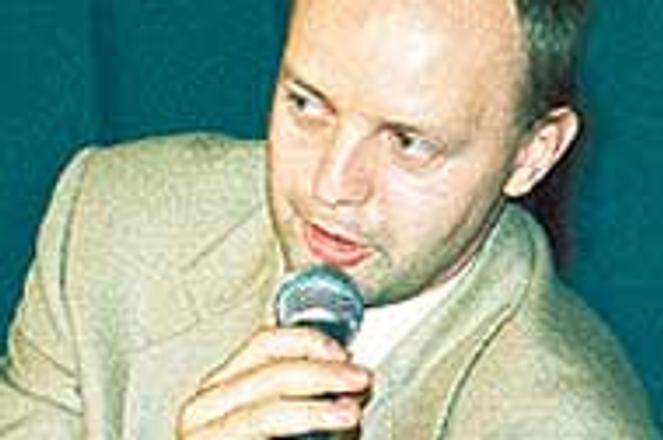Markíza TV Director Pavol Rusko bared his soul in an open letter.photo: TASR
The final act in the drama staged at Markíza TV - with the main role played by Markíza General Director Pavol Rusko and the main theme being the role of power and money - was staged in an open letter addressed by the 'General' from Záhorksa Bystrica to Interior Minister Ladislav Pittner after the minister announced several generally-known facts about the Ukrainian 'kids' surrounding Rusko.
"The mafia finally left Markíza in October 1998," Rusko wrote in the letter. In the next lines it becomes clear that he is talking about the people surrounding the Gamatex firm of Marián Kočner, who attempted to wrest control of Markíza from Rusko last fall. If Rusko calls Kočner's group mafia, he probably knows what he is talking about. The question is why he held a press conference with this same Kočner before elections, and why he offered Kočner a financial settlement for leaving Markíza.
There is only one explanation - and these are Rusko's own words, which we published on August 27, 1998: "What was I supposed to do - turn to the opposition for help? In this country I am forced to deal with the underworld. There's nothing else I can do." Conclusion #1: If any mafia figure left Markíza last October, Rusko must have come to an agreement with him.
"Thanks to the courage of Markíza and its stances, you now sit in a chair from which you equally attack me and the boys from my security service," Rusko continued in his open letter to Pittner. This is another confession. The director of TV Markíza lives in a world where his television station helps to decide the fate of the state to such an extent that without Markíza, we would have a different Interior Ministry and perhaps a different government.
The story of Prime Minister Mikuláš Dzurinda and President Rudolf Schuster is really about the fact that Markíza overwhelmingly influenced personnel questions within the former opposition. But there is something Rusko keeps forgetting: The pre-election preferences of the anti-Mečiar opposition were the same long before Markíza was founded. In other words, it was not "thanks to the courage of TV Markíza and its stances" (which we are meant to understand as 'thanks to me, Pavol Rusko'), but instead thanks to a decision of the majority of voters that we have this government today, and this Interior Ministry. Conclusion #2: Pavol Rusko lives with the conviction that he helps decide how people vote in elections, meaning that he doesn't run Markíza as a TV station, but as a tool to manipulate voters.
"It is very, very sad for me to discover that the Interior Minister silently tolerates perhaps the strongest underworld group in Slovakia," Pavol Rusko continues, while in a separate part of the letter he expresses concern whether Pittner is tolerating this group - the Ukraine mafia - in order to destroy Markíza. So Rusko must know which is our strongest mafia group, he knows of some kind of agreement between the group and the state, and can guess why this agreement has been made (in order to get rid of him, Pavol Rusko). Conclusion #3: Pavol Rusko, who before elections said that "in this country I have to deal with the underworld," today publicly thinks that even the Interior Minister has dealt with the underworld. If he knows so much, Rusko's world must be the underworld.
The open letter opened Rusko's soul. It made for shabby viewing.
Štefan Hríb, Domino Fórum,
Vol. 23, June 10-16


